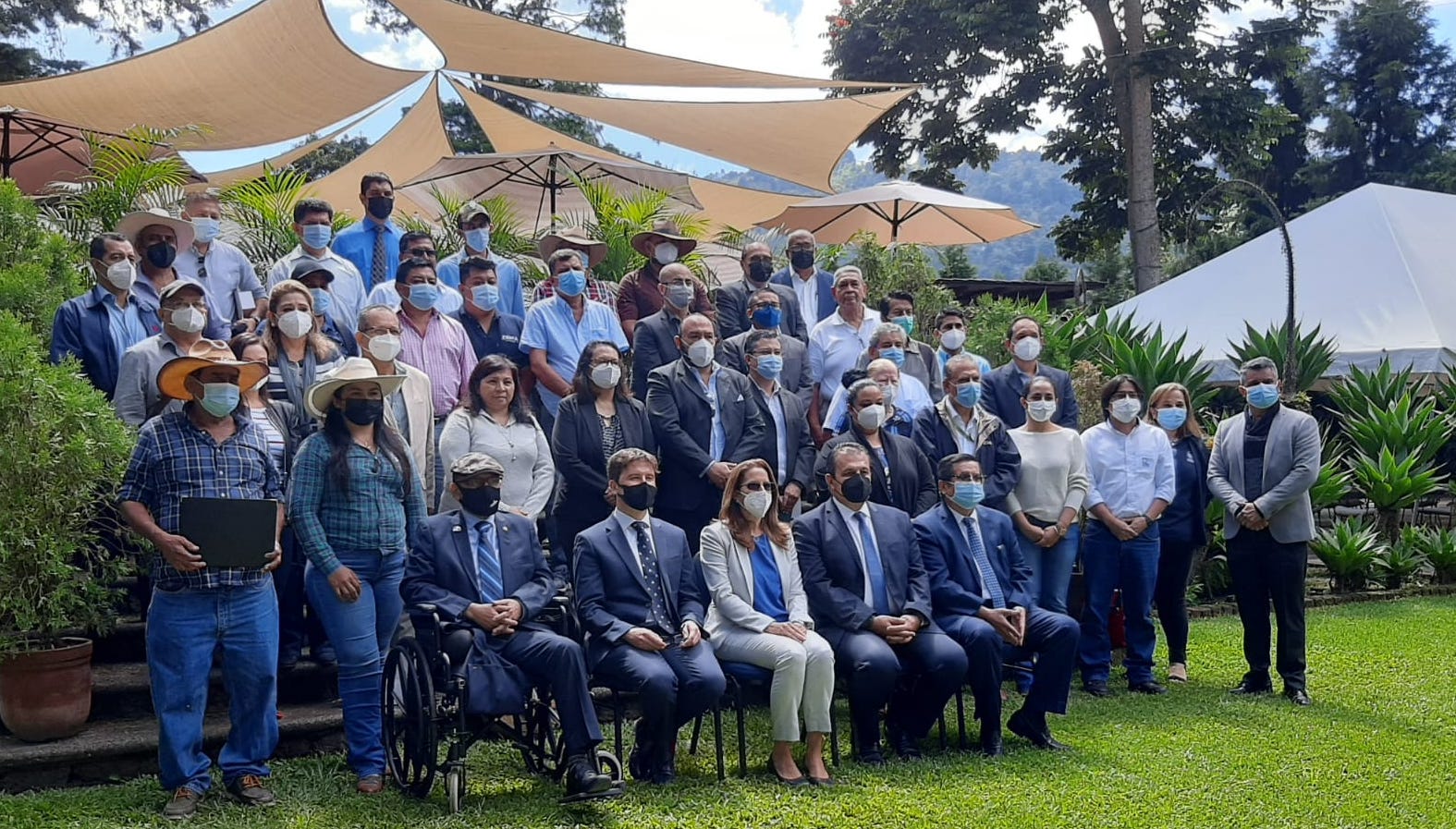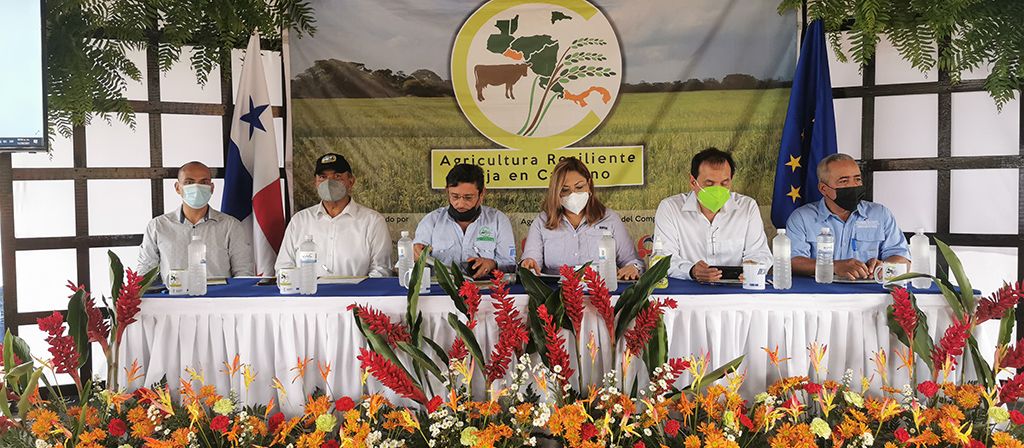Panama and El Salvador, 30 November 2021 - The project "Support to the Formulation of Appropriate Mitigation Actions in Central American Agriculture", financed by the EUROCLIMA+ programme of the European Union (EU) in the Resilient Food Production sector, has been successfully completed.
The project, with a total amount of €1,126,000 (EU grant €874,994), focused on strengthening national and regional capacities to achieve public-private ownership and consensus in reaching mitigation targets in Panama (rice) and El Salvador (cattle), catalysing mitigation actions and cooperation between Central American countries.
Video of the closing of the project
The IICA, the project executing institution, together with the Ministry of Agricultural Development of Panama, and the Ministry of Agriculture and Livestock of El Salvador (MAG) co-executing institutions and the political counterparts, the Central American Agricultural Council, which played a strategic role and joined efforts for the technical implementation of the project, as well as the promotion of a more sustainable, resilient and low-carbon agriculture, key to the future of the planet and to ensure food security, as well as the mitigation of the effects of climate change.
The number of beneficiaries in the framework of the implementation of the project exceeded 1500 people (10% women), including the extension of awareness-raising to more than 700 people related to livestock and 300 professionals and producers in the SICA region. In this way, more than 50 professionals from the public and private sectors were able to strengthen their technical capacities in the implementation of Sustainable Agriculture and Climate-Adapted Agriculture (SACAA) practices in rice and low greenhouse gas (GHG) livestock.
Both countries held their closing event where they presented the results obtained during the implementation of the project, which allowed for technical strengthening, awareness raising on the impacts and benefits of Nationally Appropriate Mitigation Actions (NAMA); the Monitoring, Reporting and Verification System (MRV); the Registration of indicators and key factors that affect the different sectors in the quantification of GHG and emissions calculations of the NAMA for rice with low Greenhouse Gas (GHG) emissions in Panama and for the livestock sector in El Salvador.
Using the learning-by-doing methodology, more than 217 Field School (ECA) sessions were developed on curriculum topics for the development of Nationally Appropriate Mitigation Actions (NAMA) for rice in Panama in the provinces of Chiriquí, Veraguas, Coclé, Los Santos and Darién; and livestock in El Salvador in Chalatenango and Morazán.
Notably, in Panama, the rice NAMA was developed and submitted for registration in the NAMA Facility as part of Panama's Nationally Determined Contributions (NDCs) to greenhouse gas (GHG) reduction. In El Salvador, meanwhile, the livestock NAMA roadmap was developed and submitted as part of the country's increased ambitions in its NDC, for subsequent continuation and registration with the NAMA Facility.

Closure of the project "Support to the Formulation of Appropriate Mitigation Actions in Central American Agriculture"
The closing ceremonies were attended by authorities from the agricultural sector, as well as technicians and producers benefiting from the project, who stated that the project contributed to the NDCs of each country, and that various actors (public-private) from the rice sector in Panama and the livestock sector in El Salvador are interacting for the common good and seeking the profitability of their activities with an awareness of the general welfare, helping to mitigate greenhouse gas emissions and learning to produce by adapting to climate change.
About EUROCLIMA+
EUROCLIMA+ is a programme funded by the European Union to promote environmentally sustainable and climate-resilient development in 18 Latin American countries, particularly for the benefit of the most vulnerable populations. The Programme is implemented under the synergistic work of seven agencies: the Spanish Agency for International Development Cooperation (AECID), the French Development Agency (AFD), the Economic Commission for Latin America and the Caribbean (ECLAC), Expertise France (EF), the International and Ibero-America Foundation for Administration and Public Policy (FIIAPP), the German Society for International Cooperation (GIZ) GmbH, and UN Environment.
About the IICA
This is the international organisation specialised in agriculture of the Inter-American System, whose mission is to stimulate, promote and support the efforts of its 34 Member States to achieve agricultural development and rural well-being through international technical cooperation of excellence.
More information
This email address is being protected from spambots. You need JavaScript enabled to view it.
